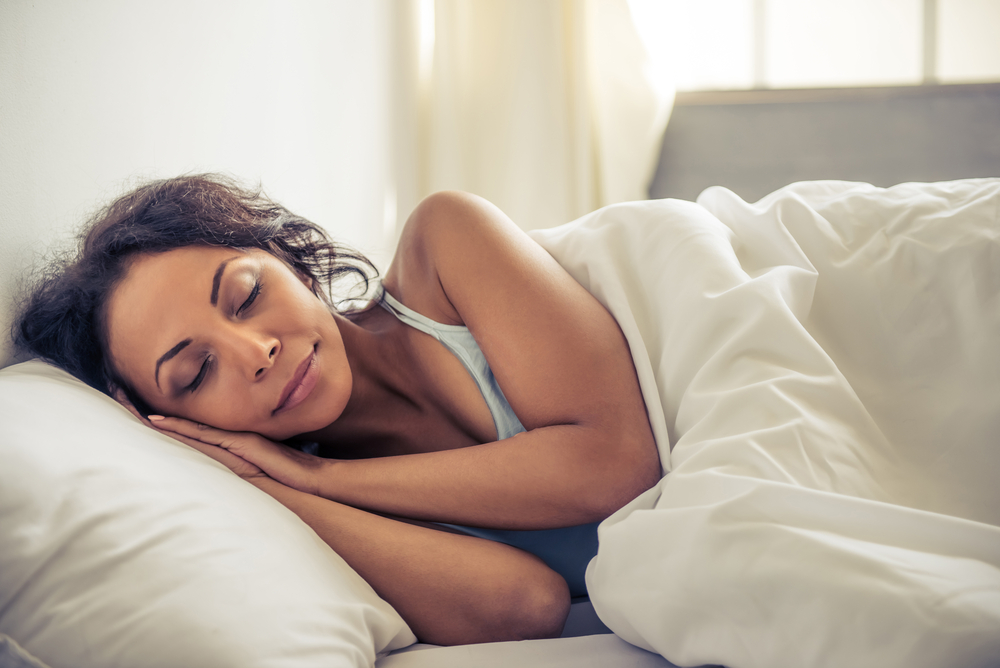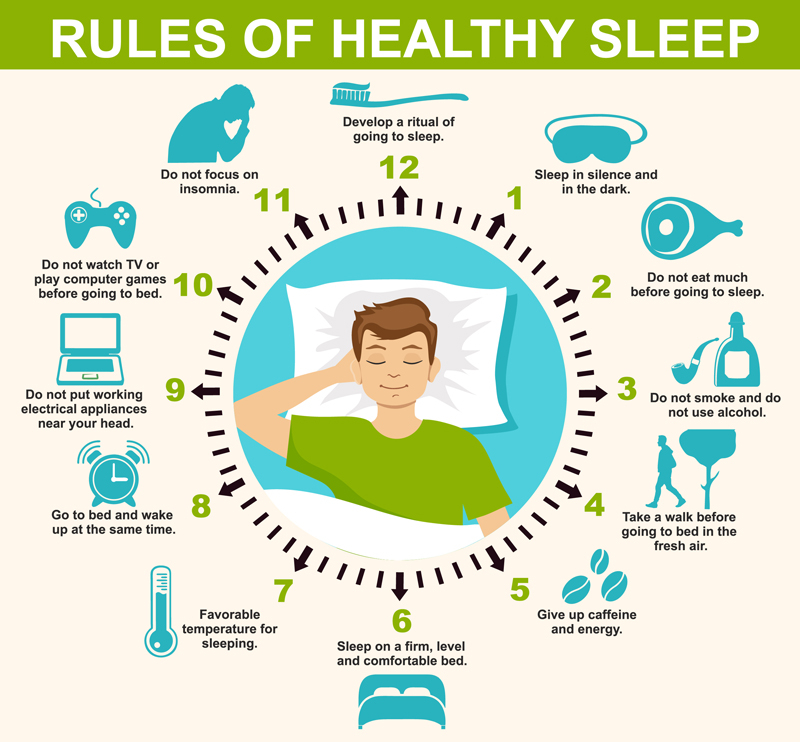How To Practice Good Sleep Hygiene

Sleeping is one of the most important things you can do for your physical and emotional health. It is the foundation upon which all other healthy factors are built. People perform best with 7-9 hours of sleep per night. Like oral hygiene and physical health, there are things you can do to help optimize your sleep. The following suggestions will help you in your quest to maximize your sleep.
Turn Off The Screens
At least an hour before you go to bed, turn off all electronic screens. This includes TVs, video games, and computers. Screens emit light that prevents the creation of melatonin. Melatonin is the substance which helps bring on sleep.
Dim The Lights
Bright light impedes melatonin development and interrupts our natural body rhythms. Humans are hard-wired to be up when it is light and asleep when it is dark. This is how the cavemen knew when it was time to get up and go to bed. If you want to read or do something else before bed, do so with low lights. Many e-readers have settings that can cut out the blue light that impedes melatonin production, and all of them have brightness settings.
Exercise
Don’t exercise right before bedtime but do exercise sometime during the day. This will tire you out and prepare the body for sleep.
Avoid Alcohol
Don’t drink alcohol for at least 4 hours before bedtime. Alcohol might help you fall asleep, but it will wake you up in the middle of the night.
Do Something Relaxing
Relax before bed. Some good options for relaxing are meditation, a bath, or reading. Meditation and reading are especially useful if you are someone who has difficulty falling asleep due to anxiety. Meditation and reading can help keep your mind off your worries.
Avoid Watching TV, Eating in Bed
Use your bed only for sleeping and sex. Your mind needs to associate sleep with your bed. If you are working in bed, watching TV in bed, or eating in bed, your mind gets confused as to the function of your bed. If your brain does not make the connection between your bed and sleep, you will have more difficulty falling asleep.

If You Can’s Sleep, Get Up
Don’t stay in bed if you can’t get back to sleep. If you do wake up in the middle of the night and can’t get back to sleep for 20 minutes, then you should get out of bed and do something relaxing. If you stay in bed while you are awake, then you begin to associate your bed with being awake, not asleep.
Create A Sleep Routine
Form a sleep routine. You should really try to go to bed and wake up about the same time every day. That way, your body knows when it is supposed to be asleep. If your sleep pattern is too varied, your body has difficulty setting up a natural rhythm.
Avoid Sugar & Caffeine
Avoid caffeine and sugar before bedtime. People have different sensitivities to caffeine but it is a good idea to steer clear of it before bedtime. Sensitive people will need to give at least a few hours between ingesting caffeine and sleep. It is recommended to stop drinking caffeine after 5 pm. Also, you want a stable blood glucose level for optimal sleep. Having a Milky Way bar right before bed is not recommended.
Keep The Room Dark
Make sure your bedroom is dark and cool. Believe it or not, a temperature in the mid to high 60’s Fahrenheit is recommended. Also, invest in some blackout shades. It is worth it since light sends a signal to your body that it is time to wake up.
Other Ideas For Better Sleep
If your sleep is really out of whack, you can try to establish a natural sleep cycle by rising and going to bed with the sun. Leave the shades up in your bedroom for a week and get up when the sun rises and go to bed when it is dark. This will set your body on a natural sleep routine. It may be hard to sustain but it is a good reset.
Avoid Sleep Aids
Finally, do not take synthetic sleep aids, including prescription or over-the-counter PM pain relievers, until you have tried to practice good sleep hygiene. These medications might help you sleep but they come with side effects. Some prescription sleep aid users have reported waking up in their pajamas in the middle of their street, driving, or doing other dangerous things. Some people also report a less restorative sleep when on sleep medication. You may also be subject to allergic reactions.
Also, you may become dependent on these pills and have difficulty sleeping naturally again. You do not want to have to take artificial sleep aids the rest of your life. If you have serious insomnia over a long period of time, then consult a doctor before taking sleep aids.

nice materials for my unit sleep education.